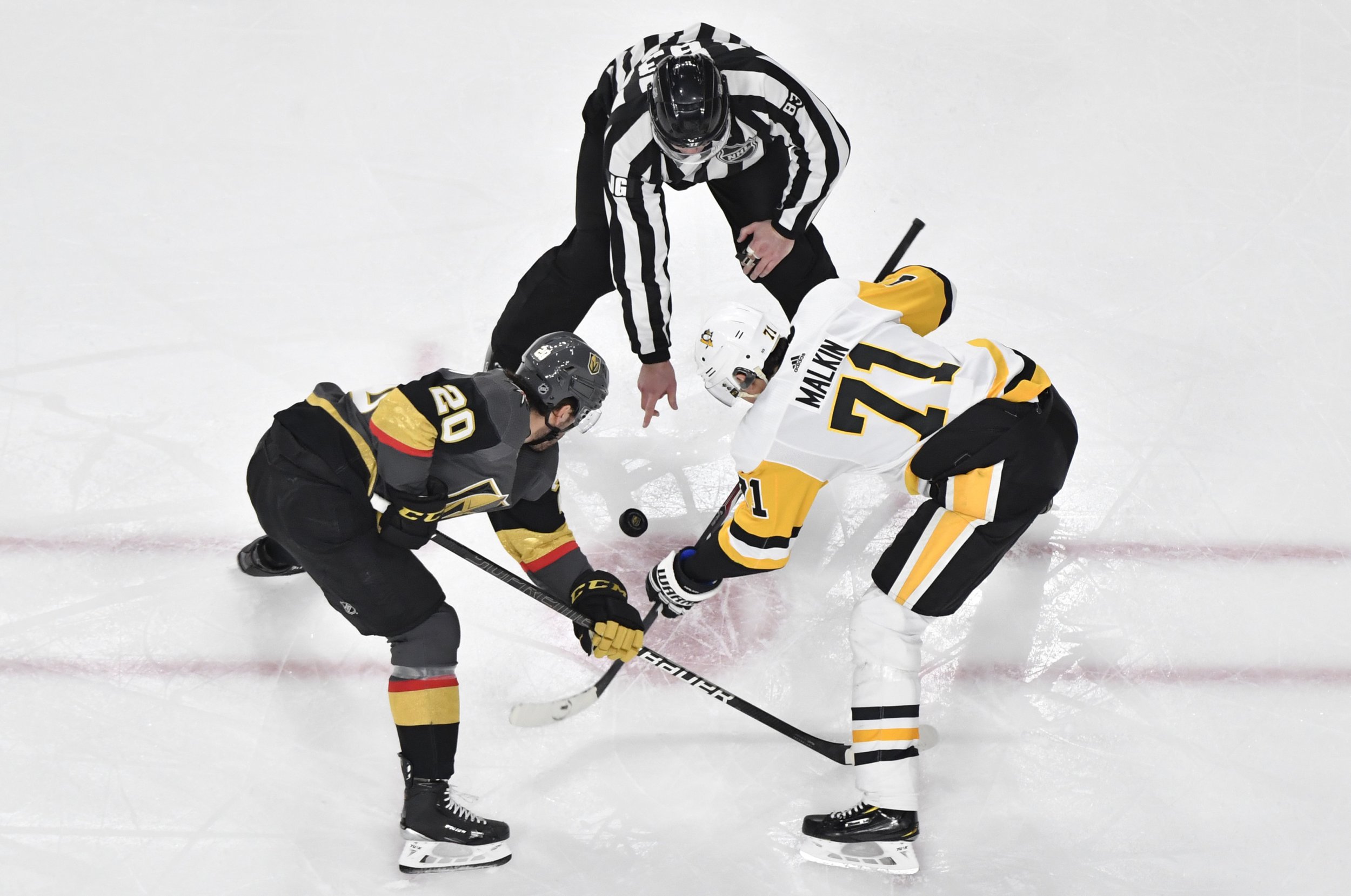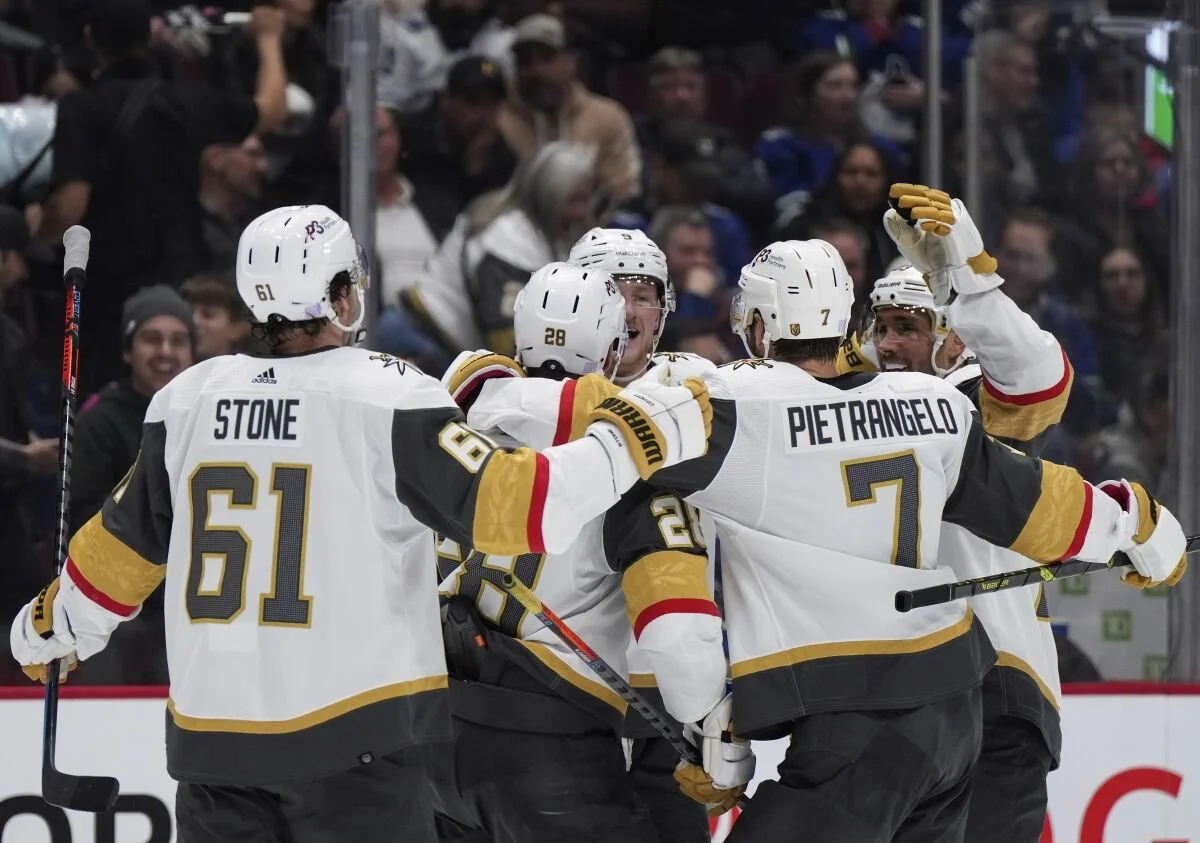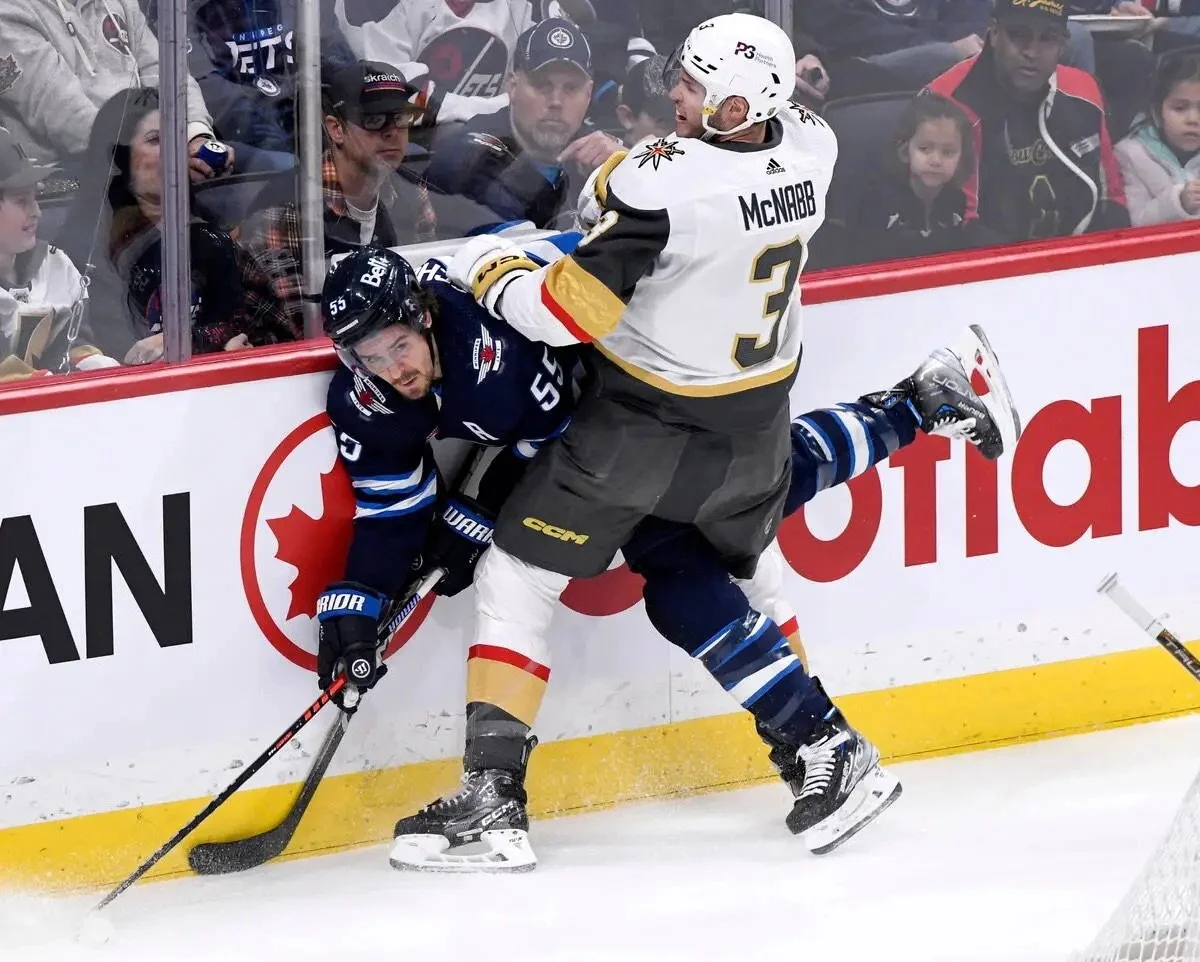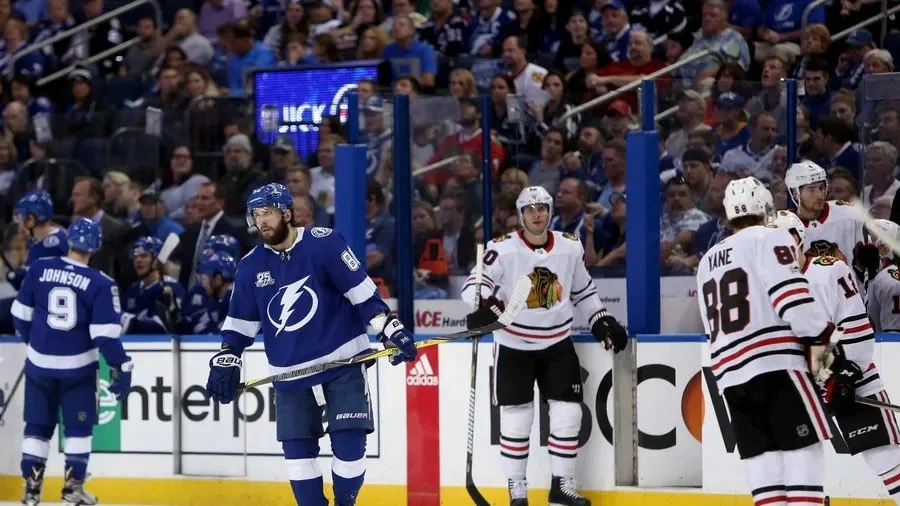What the Penguins can learn from the Golden Knights Championship
Jeff Bottari/Getty Images
PITTSBURGH - We’re just a few days removed from the Vegas Golden Knights winning their first Stanley Cup in the franchise’s six-year existence. The craziest part about this victory is that Golden Knights owner and founder Bill Foley predicted it multiple times when his city was first granted an expansion team prior to the 2017-18 season. He expected the team’s first playoff berth to come within their first three seasons and the team’s first championship within their first six.
Fans and media alike chuckled at this remark. Expansion teams are supposed to be bad for their first many years as a sort of “rite of passage” into the league. To everyone’s surprise, the team not only made it into the playoffs during their inaugural season, but they made it to the Stanley Cup Finals. Possibly the most storybook season in NHL history came to an end, however, when they faced Braden Holtby and the Washington Capitals.
Bill Foley, former General Manager George McPhee, and the rest of the organization were not just happy to be there. They got a taste of success and didn’t want to make this a “one-off” season. They doubled down on their success and went from having the Golden Misfits to a team full of juggernaut superstars within a few years.
It’s hard to compare the Golden Knights to any team in the league, other than maybe the newest expansion team, the Seattle Kraken. Both teams had a clean slate and the ability to create a team from scratch. These are the first two cities to have been granted an expansion team in the NHL during the salary cap era. Having a clean slate is more important now than ever, as salary cap space has become as hot a commodity as players or draft picks.
It also doesn’t hurt that the Golden Knights and Kraken were given the most favorable expansion draft rules ever, in retrospect. Teams around the league could protect seven forwards, three defensemen, and one goalie, or eight skaters and one goalie. So, Vegas and Seattle accepted most teams’ eighth-best forward, fourth-best defender, or second-best goalie. In the NHL today, the talent pool is deeper than ever and the expansion teams were gifted good players, who in many cases were not given enough ice time to truly flourish with their previous clubs.
All of that being said, Vegas wasn’t gifted this Stanley Cup victory. They only had six players remaining from their original season, either selected in the expansion draft or dealt to them during the expansion draft for “expansion draft considerations”. The decisions they made following their first season were just as, if not more important to them winning this championship.
That’s where the Pittsburgh Penguins can start to take notes. These are the three things that President of Hockey Operations Kyle Dubas and the rest of the organization can learn from the Golden Knights Stanley Cup victory.
Darryl Dyck/The Canadian Press via AP
When elite talent becomes available, Go after it relentlessly
Bill Foley’s drive to win bled through the organization, and it showed. The original Golden Knights team played incredibly as a complete unit. It felt like they had four second-lines, three second-pairs on defense, plus a three-time Stanley Cup Champion in net, Marc-Andre Fleury. Fleury was the “star” of that group. The rest of the team was a bunch of good players who previously hadn’t had much success.
In the following seasons, whenever a big-name, elite player became available during free agency or via trade, Vegas was always in the thick of it. Most of the time, they would end up winning the bidding wars and acquiring the elite players. It started with Max Pacioretty prior to the start of the 2018-19 season, when they sent one of their top prospects, Nick Suzuki, Tomas Tatar, and a second-round pick to acquire Montreal’s captain. He was just the beginning.
Prior to the trade deadline that same season, the Ottawa Senators made their elite, two-way winger Mark Stone available, and Vegas wasted no time. They sent another of their top prospects, Erik Brannstrom, along with a second-round pick to Ottawa for him. Vegas would quickly sign him to an eight-year contract just two weeks later. Two seasons later, they would name him their first captain in franchise history.
Following the Covid-bubble playoffs of 2020, Blues' captain Alex Pietrangelo did not get resigned to his club. Vegas then swooped in to sign him to a massive seven-year deal. In order to fit his salary, Vegas sent fan favorite Nate Schmidt to Vancouver on the same day as Pietrangelo’s signing.
During the summer of 2021, Vegas made the heartless decision to trade away their star goalie and franchise icon, Marc-Andre Fleury, for nothing more than cap space. Fleury had just had the best statistical season in his career at age 36, capping it off with the first Vezina Trophy of his Hall of Fame career. Vegas had acquired Robin Lehner the previous season and had him on a cheaper contract, making Fleury expendable.
Just over a year following the signing of Pietrangelo, Sabres' captain Jack Eichel had a dispute with his team over a difference in opinion on how his neck injury should be fixed. Eichel believed an artificial disk replacement was the best option, while the Sabres and their medical staff insisted on a fusion surgery. This dispute, along with the lack of progress from the team on the ice, led to Eichel seeking a trade out of Western New York. Eichel would trade in waterfalls for the Bellagio Fountain when Vegas acquired him with the assurance that he would be allowed to receive his preferred treatment. This deal was possible because of the cap space they cleared during the summer by dealing away Fleury. In the deal, Vegas once again gave away one of their top prospects in Peyton Krebs, a first-round pick, a second-round pick, and fan favorite Alex Tuch.
Prospects and picks are just that, prospects and picks. The Golden Knights made bets that the elite players that they could acquire by dealing away those picks and prospects would give them a better chance at a Cup than what they had, and they were proven right.
Elite talent so rarely becomes available in the NHL. Teams are often too conservative with their assets and unwilling to take risks as Vegas has. By dealing away players like Fleury, Schmidt, and Tuch, they broke their fanbase’s hearts, but they were playing the long game. Sports are competitive by nature, and competition is ruthless. The Vegas Golden Knights were on the ruthless pursuit of a Stanley Cup, and their tactics have paid off.
The Penguins have often made decisions based on emotion instead of logic. I expect that to change with Kyle Dubas at the helm. If Dubas has learned anything from watching these Golden Avengers assemble, it should be to jump on elite talent when it becomes available, regardless of how it may make the fanbase feel.
Even the loser in this Stanley Cup Final, the Florida Panthers, only made it because they took a huge gamble last off-season. They traded their Hart Trophy finalist and all-time franchise point leader, Jonathan Huberdeau, along with a great defenseman in MacKenzie Weegar, as well as a first-round pick to the Calgary Flames in order to acquire Matthew Tkachuk. Tkachuk himself became a Hart Trophy finalist this season, is younger than Huberdeau, and was the driving force in Florida’s run to the Cup Final. Safe to say the Panthers don’t regret taking that gamble.
Fred Greenslade/The Canadian Press via AP
2. In the Stanley Cup Playoffs, Size Matters
Watching the Penguins as often as I did this past season was tough at times. Do you know what isn’t tough, the team itself?
I don’t want to sound like a caveman here, but the team let opponents abuse them physically all season long with very little pushback. I don’t believe in having enforcers who play five minutes a game and contribute nothing other than their fists. However, the teams who made the Stanley Cup Finals this season had an element to them that the current iteration of the Penguins simply does not possess.
That element is the ability to physically wear down and move an opponent. It’s little things like shoving a player after a whistle, finishing a check, or just getting under the opponent’s skin. Other than Jason Zucker, no Penguins player seemed able to do that at all this past season.
During their cup runs, they would physically dominate through their speed. They could outskate anyone. Now, speed has become the baseline for teams. Being fast does not make your team special like it did during the back-to-back championships of 2015-16 and 2016-17. Now, the skill that sets teams apart is their ability to play the body and wear you down.
The Penguins need to buy into the mentality that playing the body is just as important to the game as skating, passing, shooting, and defending. Having that ability to move players opens up room for the skilled players to do what they do best, score.
Vegas had just one player on their roster in game five of the Finals listed as under 6’. That player was the Conn Smythe trophy winner, Jonathan Marchessault. The big guys around him were able to move bodies and create space for him to lead the playoffs in goals. Traditionally, the top-six forwards focus on scoring and the bottom six take care of the physicality. It’s 2023, and now that simply is not how the game works anymore. Teams need to have guys who can produce offensively and be jerks.
The physical nature of this Golden Knights team is likely what led to the injuries of multiple key Florida Panthers players. While I thoroughly believe that Vegas would’ve won game five regardless of Matthew Tkachuk’s status, having him out paved the way for a smooth-sailing game for Vegas that looked nothing like the previous games he was a part of.
Imagine how many more points Evgeni Malkin, Sidney Crosby, Jason Zucker, and other scorers could have if they didn’t have to be the only ones taking the physical brunt of their opponents every shift. I expect Dubas to look into making changes this offseason to help the team in that regard.
Douglas R. Clifford/Tampa Bay Times
3. If You’re smart enough, The salary Cap can Be a non-factor
Salary cap manipulation is the cool new thing that all of the kids are trying. It truly kicked off in the 2014-15 season when the Chicago Blackhawks acquired Antoine Vermette from the Arizona Coyotes and placed Patrick Kane on long-term injured reserve in order to fit Vermette’s contract under the salary cap. Kane’s injury miraculously was healed for game one of the playoffs that year, and he scored a point per game for the Blackhawks en route to their third Stanley Cup in six seasons.
Tampa Bay decided to get in on the fun too during their 2020-21 season. They placed Nikita Kucherov on LTIR for the entire season, allowing them to spend $98 million on their roster. The salary cap that season was $81.5 million. He returned to game one of the playoffs, like Kane. He would score 32 points in 23 games that playoff run, helping the Lightning win their second Stanley Cup in a row.
Vegas has been called out for manipulating the salary cap in previous years, as well. This year, they acquired the contract of Shea Weber to use for LTIR, nearly $8 million alone. They also had Robin Lehner, as well as Nolan Patrick on LTIR for the duration of the season. They ended with over $96 million in cap spent, nearly $14 million over the $82.5 million salary cap. During the expansion process for Vegas, the team hired Tom Poraszka to be their cap-ologist. He was the creator of the NHL salary cap website, General Fanager. This past season, his savvy work got him promoted to Director of Hockey Operations for the team, and he got rewarded with a Stanley Cup ring.
The moral of the story is; winners bend the rules. The NHL has never punished or stopped these moves from being done, and nearly every team that bends into this loophole gets rewarded for it with their names written on Lord Stanley for immortality. It’s not cheating if it goes unpunished, right?
In Toronto, Kyle Dubas employed Brandon Pridham as his Assistant General Manager and resident cap-ologist. After the hiring of Jason Spezza as Penguins' Assistant General Manager earlier this week, it seems more and more likely that Dubas will bring in his former coworker Pridham to be the Penguin's General Manager, and will likely put him in charge of monitoring the salary cap for Dubas once again.
Hopefully, Dubas and his group are able to utilize these rules the same way other teams have and gain a financial advantage.
The NHL is notoriously a copycat league. The Stanley Cup victor usually sets the tone for what teams will try to emulate in the following seasons. Is this the best formula? Sometimes. Sometimes it works when other times the game evolves quicker than teams can react and get their plans put in motion. Either way, this Golden Knights team has set the bar for the league. Kyle Dubas ought to take a page out of the George McPhee/Kelly McCrimmon handbook when molding his version of the Penguins roster.



